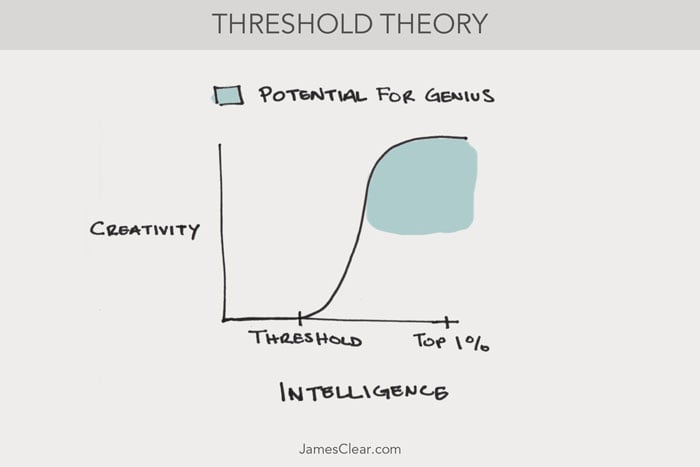What about to become a creative genius? Did Picasso and Mozart use superhuman intelligence to create their masterpieces? And similarly…
How intelligent do you need to be to become a successful entrepreneur? How good does your training program need to be to become an elite athlete? How perfect does your weight loss program need to be to burn fat?
These are questions that we don’t often ask ourselves, but they are built into our beliefs and actions about many phases of life. We often think that the reason we aren’t succeeding is because we haven’t found the right strategy or because we weren’t born with the right talents. Perhaps that is true. Or, perhaps there is an untold side of the story…
“The Termites”
In 1921, there was a psychologist at Stanford University named Lewis Terman who set out on a mission to conduct a research study unlike any before it. Terman began by finding the 1,000 smartest students in California between the third grade and eighth grade as measured by IQ. [1] After much testing and searching, Terman gathered a final sample of 856 boys and 672 girls. The children became known as “The Termites.” Terman and his team began testing the children in nearly every way you could image. They tracked their IQ, analyzed how many books each student had in their homes, took their medical histories, and on and on. But that was just the beginning. What made Terman’s study unique is that it was the first longitudinal research study, which meant that Terman continued to track and test his subjects for years afterward. The study, which is now famously known as Genetic Studies of Genius, collected data from the students throughout their entire lives. Terman collected additional data in 1928, 1936, 1940, 1945, 1950, and 1955. After Terman died in 1956, his colleagues continued tracking The Termites in 1960, 1972, 1977, 1982, and 1986. To summarize, the study started with the smartest group of children in the entire state of California and then tracked their success throughout their entire lives. Decades later, the researchers had discovered something very interesting…
Threshold Theory
The surprising discovery that came out of Terman’s study is best described by creativity researcher and physician, Nancy Andreasen… Remember our question from the beginning: “Did Picasso and Mozart use superhuman intelligence to create their masterpieces?” According to Threshold Theory, not necessarily. Being in the top 1 percent of intelligence has no correlation with being fantastically creative. Rather, there is a minimum threshold of intelligence that you need to have, and after that it comes down to a lot of deliberate practice, putting in your reps, and developing your skill set.
Threshold Theory in Everyday Life
If you look around, you’ll see that Threshold Theory applies to many things in life. Success is rarely as simple as “just work harder.” The fundamentals matter. There is a minimum threshold of competence that you need to develop in nearly any endeavor. After that, however, the difference is between those who put in the work and those who get distracted. Once you have a basic grasp of the right things to do, it becomes about the consistency of doing the right things more often. Once you understand the fundamentals, it comes down to your habits. Some examples… Weightlifting: Assuming you’ve met some minimum threshold and are doing reasonably effective exercises (like these) with reasonably effective form, the details don’t really matter that much. Once you’ve passed this basic threshold, what makes 95% of the difference is this: Are you showing up to the gym and putting in your reps? Writing: Assuming you understand the core principles of writing and the basics of grammar, what determines your ability to write well more than anything else is writing a lot. Once you reach the threshold of writing a decent sentence, the thing that leads to success is writing more. Entrepreneurship: Assuming you know what the most important metric is for your business, what makes the biggest difference is focusing on that metric every day. Once you cross the basic threshold of knowing what to work on, the most important thing is continuing to work on that one thing and not something else. If you’re brand new to an area, then it’s possible you haven’t learned enough to cross the threshold yet. But for most of us, we know what works and we have enough knowledge to make progress. It’s not about being more intelligent or more skilled, it’s about overcoming distraction and doing the work that already works. James Clear writes at JamesClear.com, where he shares science-based ideas for living a better life and building habits that stick. To get strategies for boosting your mental and physical performance by 10x, join his free newsletter. This article was originally published on JamesClear.com. Thanks to reader Dean Dwyer for sending me the creativity article by Dr. Andreasen, which led me down the long, twisted path to this article. As usual, you all are keeping me on the right track.
